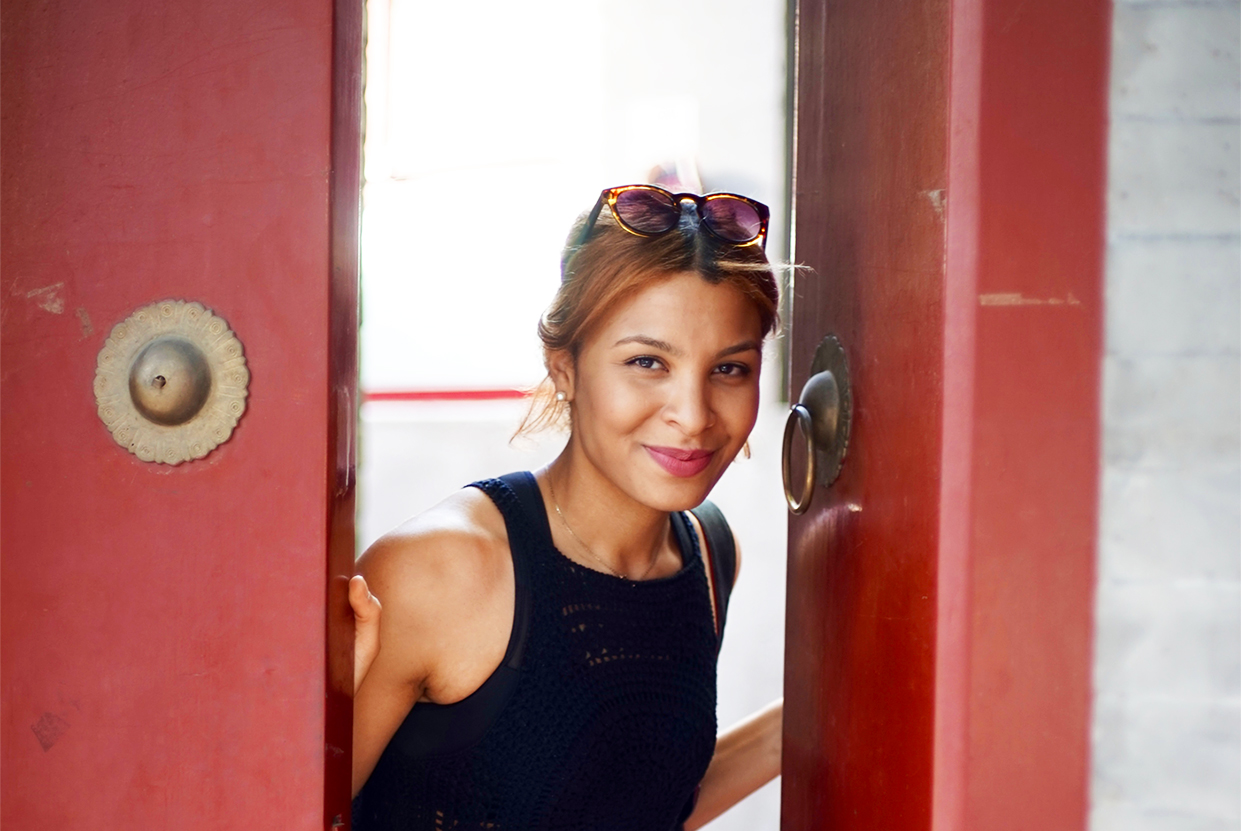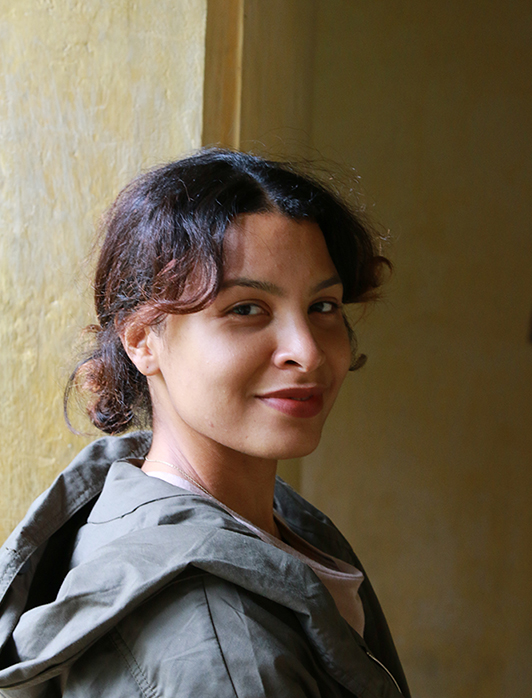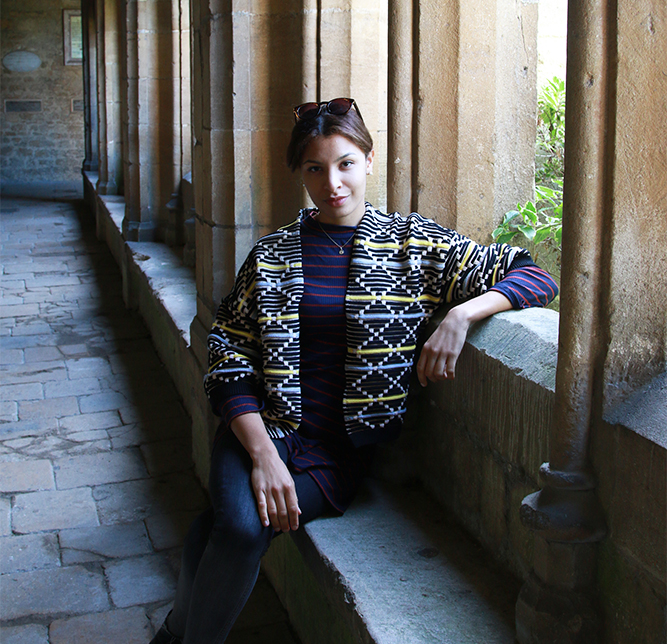Interview by Visual Collaborative
May 2019 10 min read

Fiona Tokple originally from Cologne, Germany, and has German, Polish and Togolese roots. She describes herself as a global citizen, and in the past 10 years she has lived in 6 different countries across Europe, Asia and Africa. Fiona is working as a management consultant at the Boston Consulting Group (BCG). As a special feature in our Voyager interview series, we invite you to enjoy Fiona’s boldness and insightful business perspective of what it takes to make it as a woman in any part of the world.
(VC) What sustainable development issue or goals are you most passionate about?
(Fiona) I am definitely most passionate about the transition towards sustainable energy systems, particularly in developing and emerging countries. I have always been fascinated by the role energy plays in our world. The growing demand for energy shapes geopolitics and national policies. Our current lifestyles are dependent on constant flows of energy. Access to energy is critical for socio-economic development and alleviation of poverty. I have been to places where lack of access to energy limited people dramatically in all aspects of their life. On the other side, the energy sector is today also a major driver of rapid global environmental degradation and climate change. Take China as an example: I will never forget my winters in Beijing. Thick grey smog, coughed out by chimneys of massive coal plants, darkening the sky and the cause of my headaches. This gave me a real-life experience of how our demand for energy can directly threaten our well-being. Hence, maintaining environmental stability while enabling sustainable economic and social development through sustainable energy systems, particularly in the developing world, is one of the biggest challenges of our generation and a topic I have been and still are very passionate about.
I am convinced that any proposed solutions to challenges in African countries will only be successful if they are based on a deep understanding of the situation and needs on the ground.
(VC) Many critics may counter argue that locally born ideas are not really local because the African continent is in her second economic scramble, and many multinational companies are already contributing to the continent. What are your general thoughts on this?
(Fiona) What makes ideas that are “locally born” so important, is local expertise. African countries are faced with challenges that are unique compared to the rest of the world. I am convinced that any proposed solutions to challenges in African countries will only be successful if they are based on a deep understanding of the situation and needs on the ground. This will allow disruption of new concepts and systems, invention that is suited to the local realities. I have to think of companies such as urban logistics provider TwigaFoods or FinTechs such as M-Pesa and Paystack. Without understanding what the needs and challenges on the ground are, they would not be that successful. If this understanding is available and used to adapt existing business models and technologies, then leveraging technologies and concepts that were brought from outside can be part of the solution. However, I definitely see a problem in the blind adoption of concepts that have been developed and evolved in completely different contexts. Back to my favorite topic: Energy. Going for the same electrification concepts as industrial countries did decades ago, will not only fail to meet the local needs but also significantly slow down, maybe even block the development of new, disruptive solutions.

Photo courtesy of Fiona Tokple
(VC) Given the rising despondency of political movements in Africa and some places of her diaspora, as a female professional are you more critical about your own career or more optimistic given today’s trajectory of the continent’s leadership?
(Fiona) I recently transferred from Berlin to Johannesburg, from where I will be working with clients in South Africa and across the continent. So, my decision to move here is already a response to that question [Fiona smiles]
I am not blind to the negative developments on the continent that seem to confirm the conventional Africa narrative. However, Africa is at a unique crossroad today. Faced with economic, political and environmental challenges, new opportunities are opening up to the continent. A fast changing geopolitical landscape, a young, increasingly (digitally) interconnected population and emerging new technologies become engines of socio-economic development and transformation. As all these changes are emerging, new powerful narratives are forming across the continent. What I have seen in countries like Kenya is, that people, in particular millennials, have realized that they cannot necessarily wait for their governments to get things right. It is up to them, citizens, the private sector, investors, etc. to drive change and to take ownership – and today they have more tools at hand to do than the generation before them. Hence, I am neither pessimistic, nor extremely optimistic, but very much aware of the opportunities and potential that definitely exist here.
(VC) As a beautiful woman of color in Africa who is well traveled and perhaps a little privileged with a global background as yours, what do you tell other aspiring young women or entrepreneurs about navigating the patriarch realities of the business world?
(Fiona) From my upbringing with three brothers, to my early academic years as an engineering student, I have found myself in environments primarily dominated by men. In my current job I work with managements that – not surprisingly – mainly consist of men. Today, this does not irritate me at all, but I also had to learn how to navigate through these realities. What advice I would give to other women?
First thing I will say is to be authentic and embrace the attention instead of avoiding it: Many young women think of themselves as woman and not as a professional first, which limits them to the role pushed on to them. Today, I enjoy breaking those stereotypes and to surprise those who believe in them. Often I was given much more attention, just because I seemed so “out of place” as a woman (particularly as a young woman of color, regardless of the country I was in). Just the other day I had a client meeting: a dozen men, probably in average twice my age, important leaders within the business – and me. Quite a funny picture (although it is a sad reality). While they have been obviously surprised by my appearance – I was leading the meeting – they were also very curious to hear my argumentations and recommendations. Hence, if you have this visibility, it is up to you to take the stage. Take it as an opportunity. If a woman wants to be acknowledged for her skills and accomplishments then she should be confident enough to take up space, just as men do. If she wants to reach her goals, she should not shy away from being open and confident about it. Act how you want to be treated.
Second thing is to find mentors and supporters, It is important to find people who can become your mentors and supporters. Many of those, who have been mentors to me in my professional life have been men – not surprising, given the fact that I encountered few women in leadership positions in my academic and professional life. From them I learned to be more self-confident, out-spoken and to some degree even aggressive in pursuing my goals – basically to adopt what is mostly natural to them. However, you can be as good as you want, but sometimes only with the support from others you can progress. I learned early, that hard work and being confident is not enough. It is super important to find “allies” you can talk to about your aspirations and who support you. Some obstacles that lie ahead of women in the business world can only be overcome with the support from (often particularly male) mentors and allies. Also, reach out to other women and support each other. Do not see them as competition, you are in the same team, another woman’s success is also yours!
Last but not least, prepare to work hard(er). I have always known that if I want to have the same opportunities I simply needed to be better. So be prepared to always give more than what your male counterparts would give.
(VC) At this stage of your professional career If you could collaborate with any brand or public figure in business who would it be and why?
(Fiona) Good question. On my last trip to Kigali I visited a a few start-up incubators – and was surprised to hear about a recent visit from Alibaba’s Jack Ma to the same place. I started to read up on him and his activities in Africa. His passion for the continent and its emerging, innovative entrepreneurial landscape is very fascinating. He set up a programme for African entrepreneurs in the digital space. It would be super exciting to work with him, to learn about his views on Africa (particularly on China-Africa relationships), and to shed light on and foster African tech businesses.
Often, we tend to think even of ourselves in boxes and ignore all the different facets that make up our identities – and end-up making narrow-minded decisions that definitely do not lead us to where we really want to be
(VC) What does self-awareness mean to you and how does it mold the service and work you do?
(Fiona) Self-awareness to me is a compass that helps me navigate through life. To me it is a process of continuous reflection about where I am today, where I will go next and why I want to go that way. One thing is to know who you are, the other who you want to be – and if you are aware of that, you will be able to develop your own, individual path through life. Often, we tend to think even of ourselves in boxes and ignore all the different facets that make up our identities – and end-up making narrow-minded decisions that definitely do not lead us to where we really want to be. I have never fit into a box: German with Togolese-Polish roots who has found homes on three different continents, born into a non-academic household and with degrees from the world’s best universities, female mechanical engineer and tech-geek who loves fashion. I could go on!

Photo courtesy of Fiona Tokple
If I had not been able to develop a certain degree of self-awareness, particularly of the multiple dimensions of my identity, I would not have been able to follow my intuitions, become aware of my aspirations, and to make bold decisions that seemed against all odds to other people – but turned out to be exactly the right ones. This also counts for my professional work. For example, my decision to come to South Africa for work was, from an outside perspective, not necessarily a no-brainer. However, for me, it makes sense, forms part of my own, individual story and is an important milestone in my personal and professional development.
(VC) What can the world expect for Fiona within the next few years?
(Fiona) You know, to me life always feels like a movie. You never know what turns it can take, how surprisingly weird and unexpected the screenplay can be. Today I might tell you, that in the long-run I am planning to slow-down with my travels, settle down in Berlin and to consult governments and the private sector in clean energy and mobility solutions. However, tomorrow I might get the opportunity to work with Jack Ma and to explore and support the African tech business landscape – then I would definitely not hesitate, and get my suitcase and pack list ready [Fiona smiles]